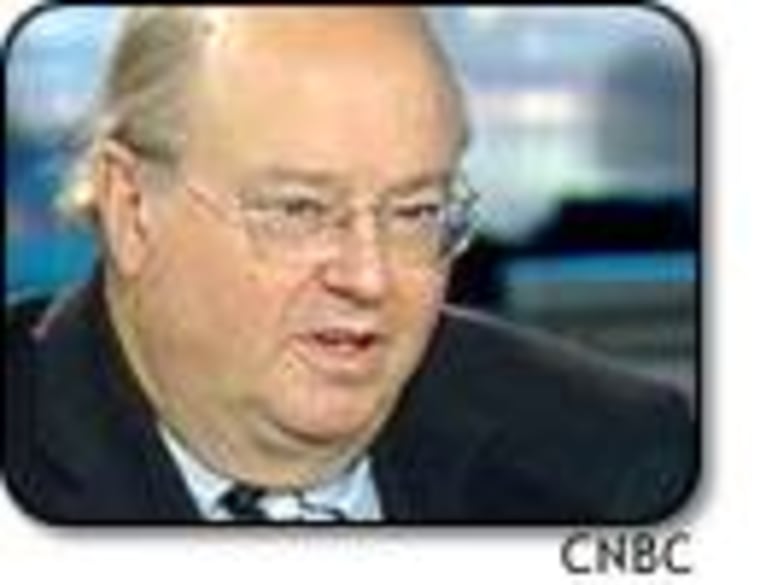Consumer confidence fell for a fifth straight month in October, plunging to its lowest level in nine years and underscoring the possibility of a dismal holiday season for retailers, a research group said Tuesday.
The Conference Board's Consumer Confidence Index dropped to 79.4, down from 93.7 in September, reflecting a weak labor market, concern about a war in Iraq and the long bear market in stocks, the group said. The fall was much sharper than predicted on Wall Street, where economists had been looking for a reading of about 90.
Financial markets fell sharply after release of the report, but prices recovered in late trading. Some analysts said the news helped build the case for the Federal Reserve to lower short-term interest rates at a meeting next week.
“The outlook for the holiday retail season is now fairly bleak,” said Lynn Franco, who heads the Conference Board’s Consumer Research Center. “Without the likelihood of a pickup in consumer spending, an already weak economic recovery could weaken further.”
The results of the survey mainly reflected responses mailed in from Oct. 1 to Oct. 18, a period when major stock indices dropped to their lowest levels in five years and then rallied substantially beginning Oct. 10. Some analysts said the grim market news was at least partly responsible for the poor confidence figures, although Franco said the index tends not to reflect such short-term market volatility.
Economy back in recession?
The overall drop of 14.3 points was the largest seen since September of last year and was unusual in that it could not be blamed on any single traumatic event, said Mark Vitner, senior economist at Wachovia Securities. The escalation of war rhetoric, a terrorist bombing in Indonesia and sniper attacks in the Washington area all likely had an impact, he said.
“October’s plunge in consumer confidence, along with the earlier reported steep drop in September durable goods orders, raises the question as to whether or not the economy has already slipped back into recession,” he said.
If the survey is followed by weak manufacturing and employment data Friday the case for a Fed rate cut “would be compelling,” he said in a report.
Futures markets showed that investors were projecting an 87 percent likelihood that the Fed will lower rates when policy-makers meet Nov. 6, up from 65 percent Monday and just 25 percent last week.
Maury Harris, chief U.S. economist for UBS Warburg, noted that consumer sentiment surveys historically have done a poor job of predicting actual consumer behavior. But Tuesday’s release came as auto sales are slowing from their breakneck summer pace and other retail sales figures have turned sluggish.
“Certainly the early indications for October are not very good,” said Scott Hoyt, director of consumer economics at Economy.com. He said the most likely scenario is for moderate retail sales growth through the end of the year.
“Retailers aren’t going to like it, but it probably is enough to keep the economy moving forward,” he said. “The doomsday scenario would be if companies get more spooked and we get another big round of layoffs. ... In that scenario you could easily get a slowdown in consumer spending that would bring the economy down with it.”
He said there was about a 30 percent chance of such a double-dip recession.
New Yorkers turn glum
Compared with last month, consumers reported sharply diminished expectations for the next six months, and their assessment of current business conditions turned much more negative. Confidence fell sharply in every region across the country, but the drop was sharpest in the mid-Atlantic region, which includes New York City.
The number of people reporting that jobs are hard to get rose to 27.3 percent from 25.4 last month and 20.6 percent a year ago.
“Recovery in the labor market is the key to consumer confidence,” Franco said.
The overall index fell past a recent low of 84.9 in November last year, when economic expectations were dampened by a recession and the Sept. 11 terrorist attacks.
The last time the index was lower was in November 1993, when it stood at 71.9. Then as now, the economy was recovering from a recession, but the labor market was still shaky.
The Conference Board’s index is based on a monthly survey of about 5,000 U.S. households. It stood at 100 in its base year, 1985.
The Associated Press contributed to this report.
